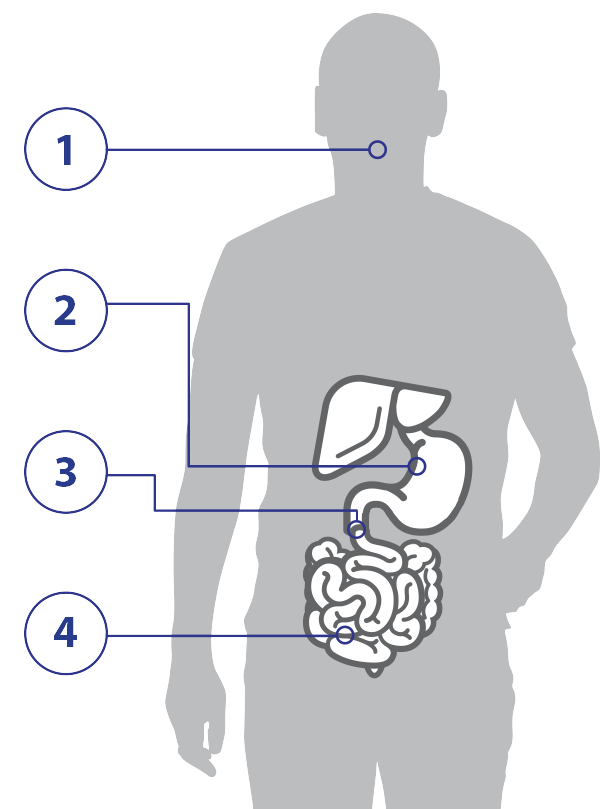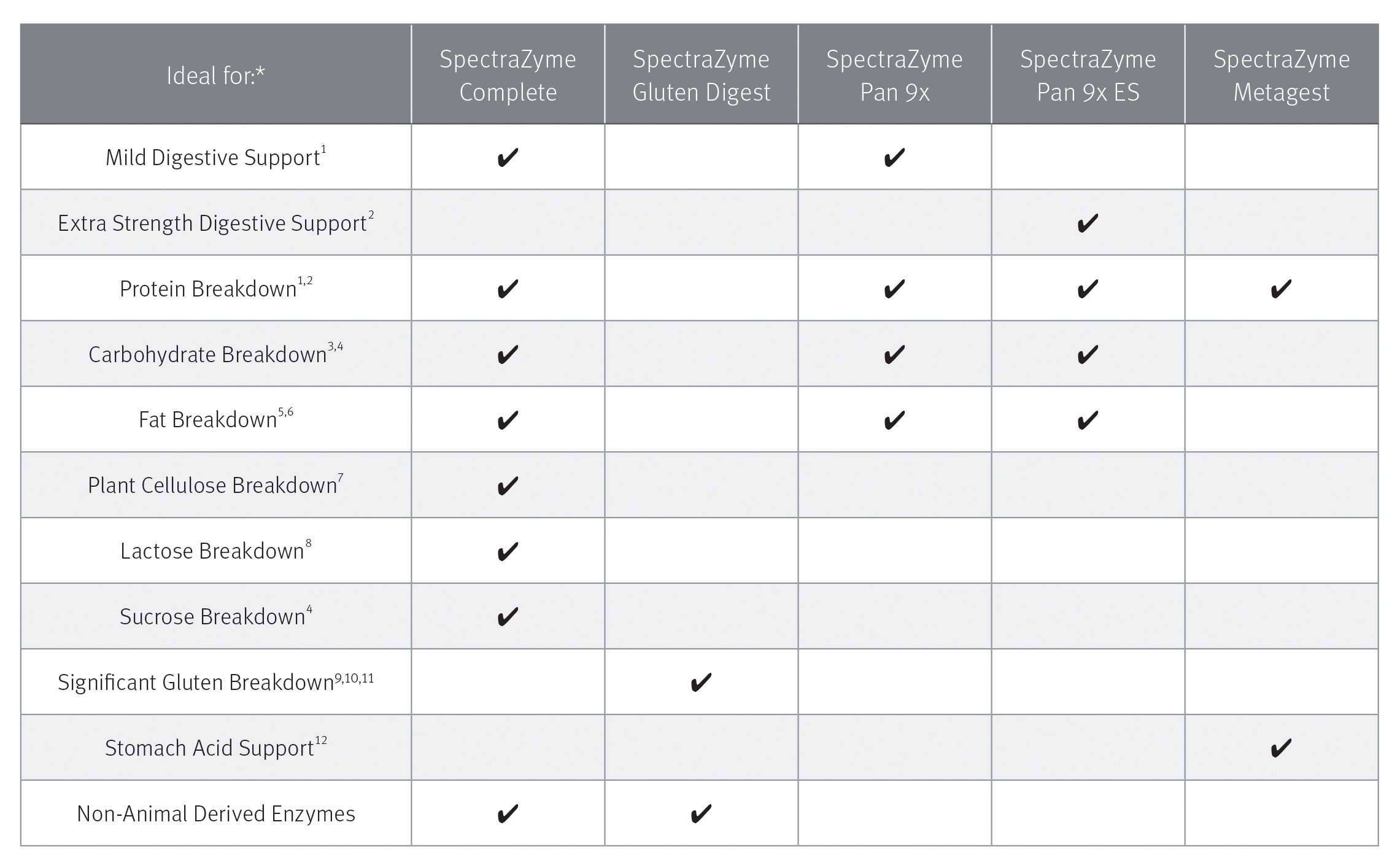Connect with a Practitioner
Our products are intended for use under the direction and supervision of a healthcare practitioner.
Enzymes are biological catalysts that are essential for the breakdown of proteins, fats, and carbohydrates into smaller pieces in order to facilitate absorption by the body.
Enzymes are essential for healthy digestion.

We offer a wide range of enzymes.
Potency Guarantee
Setting quality standards for the industry, we test each batch of product for enzyme activity. We use methodologies published from both the Food Chemical Codex (FCC) and United States Pharmacopeia (USP), a compendium of standards used internationally for establishing the quality and purity of ingredients.
State of the Art
Each of our manufacturing facilities is state of the art with enhanced environmental controls. Our enzymes are processed under special conditions so that the delicate enzyme constituents remain intact.
Targeted Applications
We offer a complete line of enzyme supplements for individual health needs, including broad spectrum digestive support, gluten sensitivity, and stomach acid support.*
Formulated with Clinically Studied Enzymes
SpectraZyme enzymes contain ingredients that have been tested in laboratory and clinical studies.
